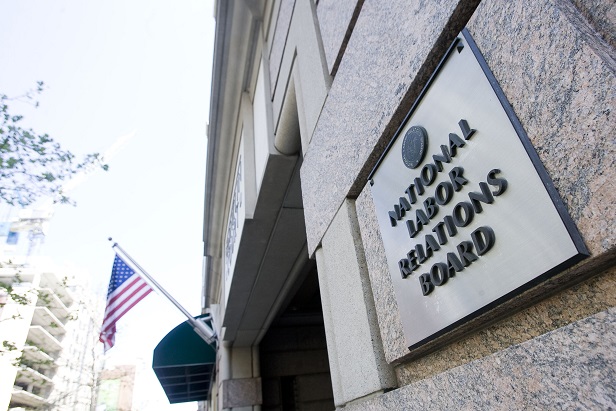 In her memorandum, the GC highlights a number of alternative remedies that Regional Directors should consider seeking to make employees whole. (Photo: Diego M. Radzinschi/THE NATIONAL LAW JOURNAL)
In her memorandum, the GC highlights a number of alternative remedies that Regional Directors should consider seeking to make employees whole. (Photo: Diego M. Radzinschi/THE NATIONAL LAW JOURNAL)
Key takeaways
- The General Counsel to the NLRB is strongly encouraging regional field agents to seek expansive alternative remedies for unfair labor practices.
- Regional Directors will likely seek more expansive relief than usual during ULP investigations.
- Employers should carefully review their operations and practices to ensure they are in full compliance with the requirements of the National Labor Relations Act.
The Office of the General Counsel to the National Labor Relations Board (NLRB) recently issued a memorandum to all Regional Directors encouraging them "to continue exploring new and alternative remedies" to ensure that the victims of unfair labor practices are made whole for the losses they suffer as a result of unlawful conduct. This is an important development for employers to monitor because it strongly suggests that the NLRB plans to seek harsher remedies for unfair labor practice violations than it has done historically.
If the Board finds that an employer has committed an unfair labor practice then it must issue an order requiring the employer to cease and desist from the identified unfair labor practice and to "take such affirmative action including reinstatement of employees with or without back pay, as will effectuate the policies of [the NLRA]."
Related: Change of course: Biden administration policies could have a big impact on workers and employers
Recommended For You
In the vast majority of cases, the remedy for an employee who suffers an unfair labor practice is reinstatement with back pay. But, in line with recent Board opinions, the General Counsel is taking the position that, sometimes, mere back pay is not enough to fully remedy the wrong.
In the recent memorandum, the GC stated, "Like the Board, I, too, welcome the opportunity to revisit remedies, and during my tenure as General Counsel, I expect to periodically issue remedy updates." Further, a recent NLRB ruling said, "… in addition to back pay, Board order required employer to submit 'appropriate W-2 forms' to the Social Security Administration and compensate affected employees for adverse tax consequences, if any, as a result of unlawful layoffs, unlawful subcontracting, and unlawful changes to calculation of profit-sharing plan payments."
In her memorandum, the GC highlights a number of alternative remedies that Regional Directors should consider seeking to make employees whole. The suggestions include, but are not limited to, the following:
Additional remedies for unlawfully terminated employees
- Health care expenses. Compensation for health care expenses that an employee may incur as a result of unlawful termination.
- Credit card late fees, loss of a home or car. Compensation for credit card late fees incurred or for loss of a home or a car that an employee suffers as a result of an unlawful discharge.
- Visas and/or employer sponsorship of work authorizations. If undocumented workers are unlawfully terminated, Regions should consider demanding that the employer sponsor work authorizations for the unlawfully terminated workers.
Additional remedies for unlawful conduct committed during union organizing drive
- Reimbursement for organizational costs. Requiring an employer to pay organizational costs that union incurs to re-run election because the employer engaged in unlawful conduct that caused the prior election to be set aside.
- Reinstating different qualified employee of union's choice. Requiring employer to hire a qualified applicant of the union's choice who will replace an unlawfully discharge employee that is now unable to return to work.
Additional remedies for unlawful failures to bargain
- Bargaining schedules. Setting a specific amount of periodic times that a company must attempt to bargain with a union (e.g. twice a week for at least six hours per session).
- Reimbursement of collective bargaining expenses. Requiring an employer to reimburse the union for negotiation expenses incurred during the entire period in which it fails to bargain in good faith.
Furthermore, the General Counsel specifically directs Regional Directors to report all cases to the Division of Advice in which they decline to provide a make-whole compensatory remedy for failures to bargain, stating in the memorandum, "Therefore, it is clear that the General Counsel is carefully monitoring each Region's metrics and is making 'make-whole alternative remedies' a key enforcement priority."
Brian Peterson is an attorney at Spencer Fane LLP in the firm's Kansas City, Missouri, office. He helps businesses, both large and small, avoid employment-related lawsuits by drafting and reviewing employee handbooks and policies and, conducting employee training programs.
© 2025 ALM Global, LLC, All Rights Reserved. Request academic re-use from www.copyright.com. All other uses, submit a request to [email protected]. For more information visit Asset & Logo Licensing.







